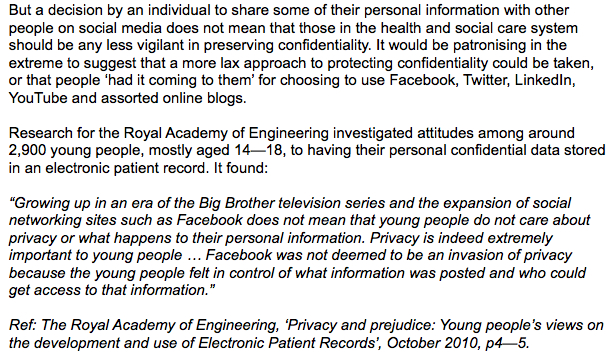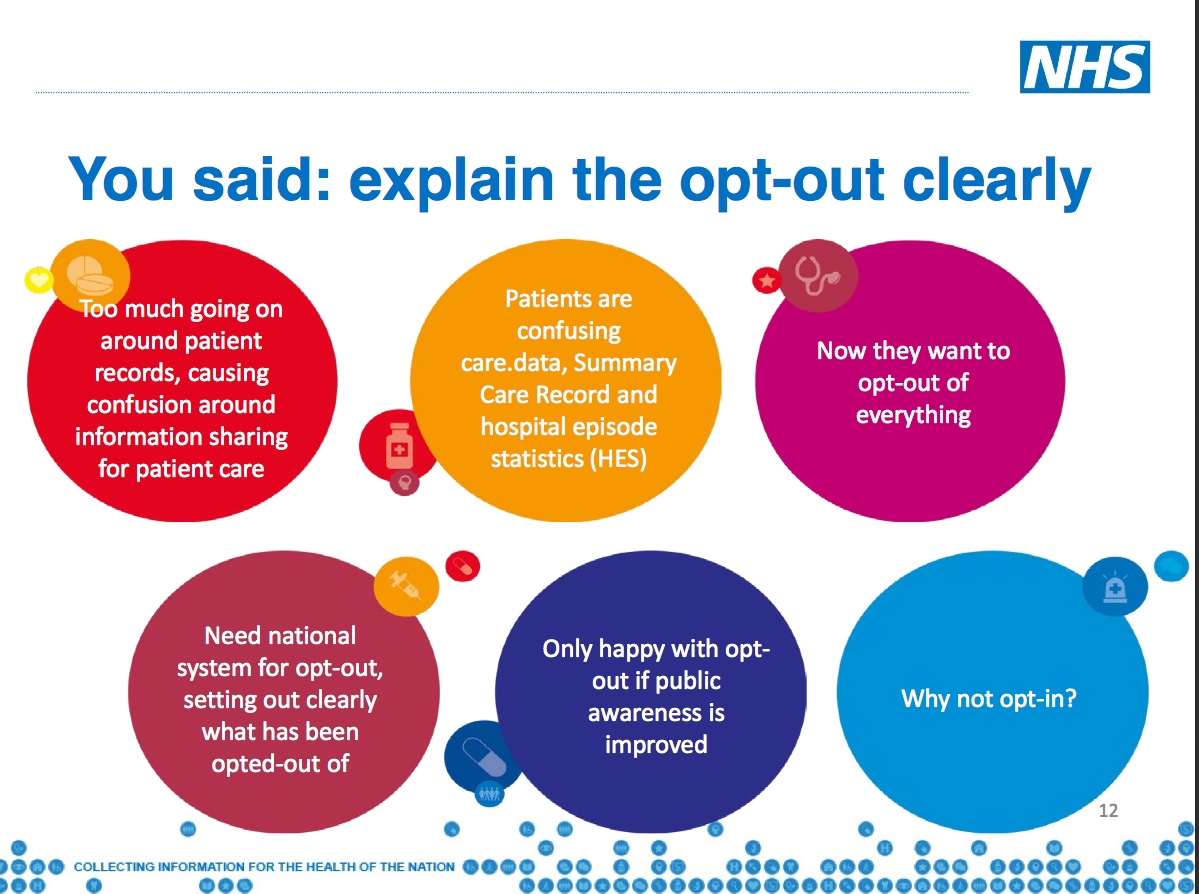Updated March 2016: the world class services at the centre have been closed. Class 1 and 3 medical certificates are no longer provided via the aeromedical centre at Gatwick.
The most recent CAA update of January 2016 confirmed that the plans would go ahead despite almost universal objection to many principles and the way it would be done. Unsurprisingly, there were only 15 responses to the 3rd consultation.
CAP 1338 was the third of three documents published by the Civil Aviation Authority in 2014-15, which had only 15 responses. The first two were CAP 1214 (www.caa.co.uk/cap1214)
and CAP 1276 (www.caa.co.uk/cap1276) which includes the 40 original responses to consultation, including major airlines, BALPA, the Honourable Company of Air Pilots (guild founded in 1929), aeromedical doctors and other professionals. All of which objected.
*****
Blog published October 28, 2015:
If government divests the state of our expertise along with our infrastructure, how will we ensure services continue to deliver universal public good?
The NHS is struggling to monitor the safety and efficacy of its services outsourced to private providers, according to a report published in the Independent in April. Now consider an outsourced medical service where the safety and efficacy is reduced, for our commercial airline pilots. #Whatcouldpossiblygowrong?
If you looked very hard at the Civil Aviation Authority’s website over the last year you would be forgiven for missing the links to the consultation to outsource or divest from its medical services. [1] This is the service organisation of 30 or so staff who ensure in a part state owned set up, that newly qualifying pilots for commercial airlines and air traffic controllers are fit for the job. And not only British pilots, but others come from outside the country, so great is its reputation. It is the last state-owned of 4 such centres, and based at Gatwick.
Pilots have unique needs and unique fitness-to-fly checks to pass, as documented by Aida Edemariam in last weekend’s Guardian: “The medicals especially, Bor says, mean facing “the risk of losing one’s job… as often as every six months”.”
The initial consultation, now a year ago, suggested outsourcing the service to the private sector. Today it seems the prefered path is complete divestment from the delivery of its services. The second part of the seemingly tick-box exercise closed today. [5]
Tick-box, because the plans are going ahead despite almost every response to the consultation voicing concerns or serious questions, including from major airlines. Balpa at the time hadn’t been able to adequately respond in the original Oct-Dec 2014 timeframe. Many other suggestions and ideas were raised, but from the CAA consultation response to criticisms it seemed blue-sky thinking, creative alternative solutions differing from the CAA plans, was not welcomed.
It seems that in a bid to become lean, akin to having less to pay for on the balance sheet, the government is selling off not only concrete assets but losing British state-led skills in services at which we excel. It is asking commercial companies to fill the gap and many question if there is sufficient expertise in the commercial market to deliver.
There are five key concerns here. The first, is that without the state to hold accountable for the service, airlines and pilots must foot the bill they can no longer control, in a near monopoly market. Elsewhere in health, spending on outsourcing these services has reportedly rocketed.
The second, is quality control. How will quality of delivery be maintained for services which operate entirely for the benefit of the public good, but are now be required to turn a profit?
And the third is continuity of service. How will the universality of these services be maintained, offered fairly and to whom?
The fourth is whether the UK should sacrifice its unique leadership position of respected medical expertise in European and global flight safety?
And finally and most importantly, pilots, airlines, and healthcare professionals questioned in the last quarter of 2014 whether safety may be put at risk if the cost cutting move at the Civil Aviation Authority goes ahead.
This cut to regulatory oversight is part of the bonfire of red tape.
Responding to plans outlined by the Civil Aviation Authority in a public consultation [1] last autumn, professionals overwhelmingly suggested service improvements could be made without outsourcing what one airline called “the priceless nerve centre of expertise in the CAA”.
Based at the CAA’s Gatwick headquarters, the aeromedical centre offers the initial medical examinations required for commercial airline pilot and air traffic controllers and periodic checks thereafter. It also undertakes assessments of the fitness of pilots to return to flying after illness.
“All pilots who hold a commercial licence undergo an annual Class 1 medical assessment with an Aeromedical Examiner, increasing to every six months from the age of 60, or 40 if they are undertaking single pilot operations. [source: whatdotheyknow.com ]
Steve Jary, Prospect national officer for aviation, said:
“The CAA executive board needs to listen and put safety, not commercial interests at the heart of its decision making.”
In its follow up consultation response in early 2015, the CAA said it does not believe in putting a price on public safety and it realised that cost and value are sensitive issues.
The national value of excellent medical services to pilots in any business model on paper however, may be impossible to put a price on in practice. It was especially sensitive earlier this year as the plans for change coincided with the climate of raised passenger awareness following the Germanwings flight 9525 on March 24.
Long before this, in response to the October 2014 consultation, the Honourable Company of Air Pilots, a professional guild, wrote:
“As long as human pilots are part of the aviation safety chain, it is essential that their fitness to operate is monitored and supported by an expert community without fear of or bias from commercial pressures.”
Lacking in detailed financial analysis it is hard to see from the consultation how alternative solutions measure up against private provision. Specifically there was no estimate in the document of the cost of the CAA meeting its statutory obligations. [3]
One of the three airlines that responded in consultation, suggested the CAA could be seen to be outsourcing the commercially viable part of the service:
“The Aeromedical centre only seems to account for £500k out of the £3 million …and could potentially be seen as the most profitable element.”
By contracting out to a commercial provider, and introducing the need to make a profit, some respondents are concerned it would further increase costs to industry or individuals, and the CAA acknowledged this. Fees could potentially rise in what will be effectively a monopoly market, as in April there were only three other approved providers for this service, across all of the UK. Two are already operated by the same public private partnership and although part owned by government, are essentially commercially run.
Free from Treasury control, the Civil Aviation Authority is self-funding but sits under the wing of the Department of Transport, accountable to the Secretary of State for Transport. [4] But Government support was questioned by a pilot in the consultation, who wrote:
“If the CAA and the Department for Transport cannot resolve this without destroying the CAA medical service then we might as well pack it all in.”
Pressure has reportedly come from EASA, the European Aviation Safety Agency to follow regulatory best practices and separate the duties of the authority from the delivery of services.
However a group representing 15 CAA (UK) approved medical examiners, with a mean of 22 years experience, suggested this regulatory issue could be resolved in other ways, and said:
“Outsourcing any part of the medical department would remove essential functions, weakening the ability to respond to or promote future regulatory changes.
“Fragmentation will introduce inefficiency as work which should be integrated will be on at least two sites – never helpful.”
The medical service provided by the CAA is recognised as a market leader across Europe. It influences European and worldwide aeromedical policy and as one airline wrote in the consultation, has “rebuffed some of the more non evidence based demands of the European Aviation Safety Agency.”
Maintaining that globally respected expertise, say the CAA plans, is a third reason for redesigning a medical department fit for the future but many respondents believe that outsourcing will achieve the opposite.
The Honourable Company of Air Pilots suggested the plans would have:
“an adverse impact on flight safety and diminish unacceptably the UK’s aviation medicine competency, research capability and global reputation for excellence and leadership.”
Headcount of currently over 30 full time equivalent staff could be reduced to eight if outsourcing plans go ahead and the service operates at its minimum regulatory duties.
Last year’s preparations for the outsourcing included an event in May open to providers through the NHS Partner’s Network of the NHS Confederation at which one was an NHS provider, but all others were private sector contracting organisations.
The Public and Commercial Services Union believes there is no provider which could fill the gap if the CAA stops providing its services in the current form. They said:
“We are requesting that this consultation be halted and consultation commences with the recognised trade unions on options within this paper to retain all existing services in-house.”
In April, the CAA said: “We are continuing to explore options for the future provision of medical services. Safety remains our number one priority and we will ensure that any changes that are made will be designed to enhance the UK’s excellent safety record. All medical requirements relating to pilots are set at international level and regulated nationally and will remain in force and unchanged regardless of any decisions relating to the provision of medical services in the future.”
Mr Haines, explained at the April Board Meeting that “there would be a further discussion at the Board on the outcome of the CAA’s medical review consultation.” What that was is yet to be published. Transparency has not been the board’s strongest point in 2015.
Consultations are about allowing the public a chance to participate in democratic processes in order to play their part in determining the outcome. This consultation appears to have changed little of the plans.
There should be public debate around what we need our service institutions for, what value we place on a universal public good where cost and benefit cannot be personalised, and where change requires meaningful public consultation. These changes are too important to be reserved for niche interested parties or for them to be a tick box exercise in which the planned outcome goes ahead regardless of the majority feedback. Public consultation in its present form, appears to offer little in the way of checks and balances in today’s democracy. Some are described as farcical.
Changes made in the public interest should be transparent, accountable, and robust to stand up to meaningful challenge.
As the Treasury seems set on its course, I wonder if they are using blue sky thinking to divest from our wealth of knowledge, staff and skills wisely, or plucking justification for ideology out of thin air?
###
References:
[1] Responses to consultation on the future structure of the CAA’s Medical Department: http://www.caa.co.uk/docs/33/CAP%201276%20Future%20structure%20of%20CAA%20Medical%20Department.pdf
[2] The prior information notice: http://ted.europa.eu/udl?uri=TED:NOTICE:99734-2015:TEXT:EN:HTML (not yet a full tender notice)
[3] Financial detail limited: https://www.caa.co.uk/default.aspx?catid=1350&pagetype=90&pageid=16369
[4] CAA independent but accountable to Department of Transport http://www.parliament.uk/business/publications/written-questions-answers-statements/written-question/Commons/2014-09-10/209031









